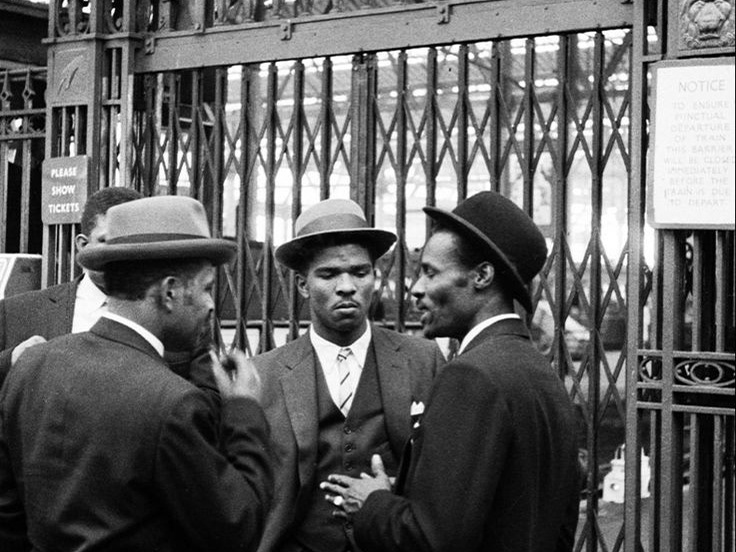Navigating Mother-Daughter Relationships in Amy Tan's
The Joy Luck Club
Mother-daughter relationships are one of the most complex and emotional relationships a
woman will have in her lifetime. A woman’s relationship with her mother never ends, even if it
is estranged. Typically, women keep some type of relationship with their mothers throughout
their lives despite any past trauma, history, or how she makes them feel. Amy Tan’s first novel
“The Joy Luck Club” closely examines the complex relationships between four immigrant
mothers: Lindo Jong, Ying-Ying St. Clair, An-Mei Hsu, and Suyuan Woo, and each of their
daughters: Waverly Jong, Lena St. Clair, Rose Hsu Jordan, and Jing-Mei “June” Woo.
In her analysis of mother-daughter relationships in “The Joy Luck Club”, Michelle Wood
notes that “Tan’s dedication of the book, ‘To my mother and the memory of her mother’,
suggests that the mother-daughter relationships the text portrays in China provide a critical
framework from which to analyze the mother-daughter relationships in the United States” (Wood
82). For many immigrant mothers, the reality of their decision to leave their native countries is
one that is far from easy; sometimes, it can be so tragic and upsetting that they cannot bear to
explain their turmoil to their children, fearing the gravity of pain attached to their stories. The
generational traumatic family history affects the daughters in the present day, even without them
knowing. Each daughter feels as though she does not know her mother well enough which results
in an emotionally detached relationship due to their differences. This is inherently connected to
their mothers, in a way that is not obvious to the American daughters until they are much older
or until a vital conversation takes place between each mother-daughter pair.
As a child, Waverly was a chess prodigy, and her mother often flaunted her daughter’s
achievements publicly to her peers. This made Waverly upset because it made her feel as if her
mother was showing her off like she was a trophy and taking credit for her successes, instead of
being truly proud of her. In Chinese culture, “every achievement of the child is that of their
parents also” (Wang). In retaliation, Waverly stopped playing chess to get back at her mother,
but this prompted no reaction from her mother. As an adult, Waverly continues to fear her
mother’s judgmental opinions and comments and is always on edge when they are together.
Anything her mother says always takes on a negative meaning, which then impedes her
happiness.
In the film adaptation of the book, there is a scene in which Waverly accompanies her
mother at a hair salon. There is visible tension between them as they begin to have a
conversation. Lindo expresses feeling as though Waverly is ashamed of her, which in turn makes
Lindo reflect on her own past and her relationship with her mother. Both Lindo and Waverly are
similar, they have been burdened by the need to impress their own mothers, and without gaining
their approval, they felt as if they accomplished nothing. This feeling is exemplified when
Waverly breaks down in tears as she says to her mother, “you don’t know the power you have
over me” (Wang). Lindo had high expectations for Waverly, and although she means well, she
criticizes every choice, judges every action and decision her daughter makes. Although that
behavior originates from a place of love, it is perceived as a disappointment, and is a desperate
attempt to get her daughter do so much better than what she was able to do in her lifetime.
Lindo was not afforded the same opportunities as her daughter. She was betrothed to a
young boy as an infant, she was married at fifteen and was treated very poorly by his mother.
Lindo was able to escape that situation, but she wanted a better life for her daughter.
Above all else, she wanted Waverly to be happy. After the conversation at the hair salon, they looked at
each other in the mirror and, during a metaphoric and literal moment of reflection, they both end
up laughing, feeling that their relationship has been restored. Waverly can now feel confident
about her decisions and choices without worrying what her mother may think.
Ying-Ying St. Clair struggled with severe mental health issues for most of her life. While
living in China, her first husband abused her and then abandoned her for another woman. She
became overwhelmed by her depression and while bathing her first born son, she began to
dissociate and accidentally drowned him. The guilt and pain of that event consumes her and casts
a dark shadow over her. As a result, her daughter Lena, grew up with a ghost of a mother for
much of her childhood. Due to Ying-Ying’s emotional absence, she was not able to pass down
any wisdom to her daughter or guide Lena throughout her life.
Now, Lena is trapped in an unhappy marriage to Harold Livotny, who insists that they
spilt every bill and expense because it signifies that their love is equal. As a result, Lena becomes
silent, and it breaks her mother’s heart to see her own daughter become so voiceless because of
her husband’s demands. According to a study conducted by the University of La Laguna and
Cuban Neuroscience Center, “neglected children tend to have difficulty discriminating and
identifying emotional expressions such as anger and sadness, and they have fewer adaptive
emotional regulation skills” (Rodrigo). This could be the reason as to why it takes Lena so long
to realize that her husband was not actually showing her any love by insisting that they split
every expense. Harold sees living with his wife as if they were roommates and allows himself
the liberty to have control over his own money without having to fulfill any of Lena’s needs. In
the novel, she says he makes “about seven times more” (Tan 173) than she does, yet they are
both paying equal amounts for everything.
Ying-Ying does some reflecting on her own life, what her husband did to her and what he
put her through. She sees that her daughter is on the same path of passivity and self-
abandonment, so she tells Lena to leave her husband until he gives her the respect that she
deserves “with both hands open” (Wang). This guidance from her mother ultimately empowers
Lena to take control of her life, leave her husband and move on to find someone who is better for
her. Ying-Ying was absent for much of Lena’s life, but when she became emotionally present
and passed along her wisdom, her words and guidance meant everything to her daughter.
Suddenly, Lena found the strength and confidence to change the course of her life.
As a child, An-Mei Hsu watched her own mother be kicked out and disowned by her
family, only to have to go on to marry Wu Tsing, a wealthy merchant with three wives and sadly
she becomes his third concubine. During the marriage, An-Mei’s mother was sexually assaulted
by this man and when she told her family, they did not believe her. This left her feeling trapped
inside an abusive marriage because she knew that her family had already disowned her and if she
left, nobody else would marry her.
When An-Mei’s mother decides to bring her back to live with
her, An-Mei sees how poorly her mother has been treated and taken advantage of by everyone
around her. She watched her mother tend to everyone else’s needs, forget her own worth and
refuse to fight for herself and demand respect. An-Mei’s mother eventually chooses to take her
own life for the sake of protecting her children. She does this because she knew that once she
passed away, her children would be honored. Witnessing her mother’s mistreatment and
knowing she did not value herself until her last breath, taught An-Mei the importance of
demanding what she wants and needs in life and not settling for anything else.
An-Mei’s daughter, Rose, did not learn the same lesson as her mother. Rose is married to
Ted and believes that her love is never enough for him. She is always devaluing herself and
trying to cater to her husband without ever considering her own emotions or desires. This
eventually drives Ted away. But when An-Mei tells her own mother’s story to Rose, she explains
she was taught to “desire nothing, to swallow other people’s misery, to eat my own bitterness”
(Tan 241) and although An-Mei was able to break free from this way of thinking, she wonders if
her daughter will be able to do the same. An-Mei explains to Rose that even though she raised
her differently than her own mother raised her, she worries that centuries of the women in her
family never had the freedom to make their own choices and they are “like stairs, one step after
another, but all going the same way” (Tan 241), or what one would recognize today as
generational trauma. What An-Mei’s mother experienced, An-Mei had to experience to an extent
as well, followed by Rose feeling the effects of her mother’s and grandmother’s devastating life
events.
Within each of the mothers’ separate lives, each woman often felt invisible, as if her life
had no value, always having to cater to people around her without ever thinking of what she
wanted and never demanding that for herself. By having this vital conversation with her mother
and learning about what happened to her grandmother, Rose begins to realize that she is worth
more than she has ever given herself credit for and gains the strength to stand up for herself.
Rose and Ted reconcile and cultivate a healthier relationship only because Rose was able to see
that she deserves to be treated just as importantly as her husband, and that the love she gives him
is priceless.
For most of her life, Jing-Mei “June” Woo has always felt as if she has been nothing but
a disappointment to her mother. At a New Year’s Eve gathering, Waverly humiliates June by
announcing, in front of their families, that June’s work has failed to meet the expectations of her
big corporation, which leaves June feeling embarrassed. It is important to note that Waverly’s
smug attitude in this scene of the novel most likely stems from her mother showing her off so
much when she was younger. In response to Waverly’s comment about June, Suyuan, June’s
mother, says, “True, cannot teach style. June not sophisticate like you. Must be born this way”
(Tan 230). Suyuan’s comment makes June feel even worse, after being humiliated by Waverly,
now she’s betrayed by her own mother.
While washing dishes, June explains to her mother that
she was embarrassed by her comment. June knows that she’s been a disappointment to her
mother, and that among all the hopes and dreams her mother had for her, she was never able to
successfully fulfill any of them. Suyuan then tells June that she never expected anything, she
only hoped, but June says to her mother that “every time you hoped for something I couldn't
deliver, it hurt. It hurt me, Mommy. And no matter what you hope for, I'll never be more than
what I am. And you never see that, what I really am.” (Wang). Suyuan hears this, and reassures
June that she does in fact see her, she truly sees her, and explains to her daughter that while
everybody else is off searching for the best of the best and looking out for themselves, June is
always looking out for everybody else: like at the dinner scene of the book, when everybody
rushed to grab the best-quality crab, June grabbed the worst piece, Suyuan notices and says
“Only you pick that crab. Nobody else take it. I already know this. Everybody else want best
quality. You thinking different.” (Tan 233). This goes to show that June has the best-quality
heart. June makes sure that everybody has the best before she gets the best for herself. Suyuan
recognizes that her daughter is compassionate and kind.
When her mother passes away, June learns that during World War II, Suyuan was forced
to abandon her first-born twin daughters, hoping they would be rescued, and she would see them
again one day. She had lost all hope of motherhood when she lost her daughters, but that hope
resurrected after she had June. June’s father reassures Suyuan that “a mother can never lose hope
for her children” (Wang). June gave her mother purpose and the desire to hope again, and it was
June who filled that hole in her mother’s heart. June’s father gives her a swan feather that
represents the hope Suyuan had for June, and he tells her that all her mother ever wanted was for
her to have a better life than the one her mother left behind in China. He explains that Suyuan
never gave June the feather while she was alive because she did not feel like she was enough of a
mother for June. The reconciliation between Suyuan and June through her father, through the
memories June has of her mother and the conversations they had, gives June hope and strength.
In the final scene of the film, June admits that she was able to find the best in herself by being
able to find and meet the sisters her mother abandoned out of desperation all those years ago.
After meeting her half-sisters, June finally feels like she can do something for her mother and
make her proud. June keeps Suyuan’s legacy alive by passing down her mother’s hope, joy, and
memories to her new sisters.
The narrative structure of mother-daughter stories in “The Joy Luck Club” shows that
each woman “finds wholeness in the integration of the landscape and the words that interpret it”
(Wood 70). In addition, the familial and personal satisfaction the final pages of the novel provide
helps readers reflect on how an understanding of the past holds the power to strengthen one’s
own relational and individual resolutions in the present and the future. Throughout the entire
plot, the daughters feel so distant from their mothers and the mothers feel so distant from their
daughters. However, when each pair had a meaningful, honest conversation, so much was
revealed and the mothers and daughters were left feeling so much more connected, not only their
femininity, but to each other. “The Joy Luck Club” explores many different themes, such as
generational trauma, domestic violence, hope and love, but it always circles back to wanting to
be unconditionally loved by your mother, by your daughter, and by your family.
Works Cited
Rodrigo, María José et al. “Brain and personality bases of insensitivity to infant cues in
neglectful mothers: an event-related potential study.” (“Faculty Opinions: Brain and
personality bases of ...”) Development and Psychopathology vol. 23,1 (2011): 163-76.
doi:10.1017/S0954579410000714
Tan, Amy. The Joy Luck Club. New York, New York: G.P. Putnam Sons, 1989. Print.
Wang, Wayne. The Joy Luck Club. Buena Vista Pictures, 1993.
Wood, Michelle Gaffner. “Negotiating the Geography of Mother-Daughter Relationships in Amy
Tan’s ‘The Joy Luck Club.’” Midwest Quarterly, vol. 54, no. 1, Sept. 2012, pp. 82–96. EBSCOhost,
https://search-ebscohost-com.ccriezp.idm.oclc.org/login.aspx?direct=true&db=a9h&AN=82542184&site=ehost-live&scope=site.




